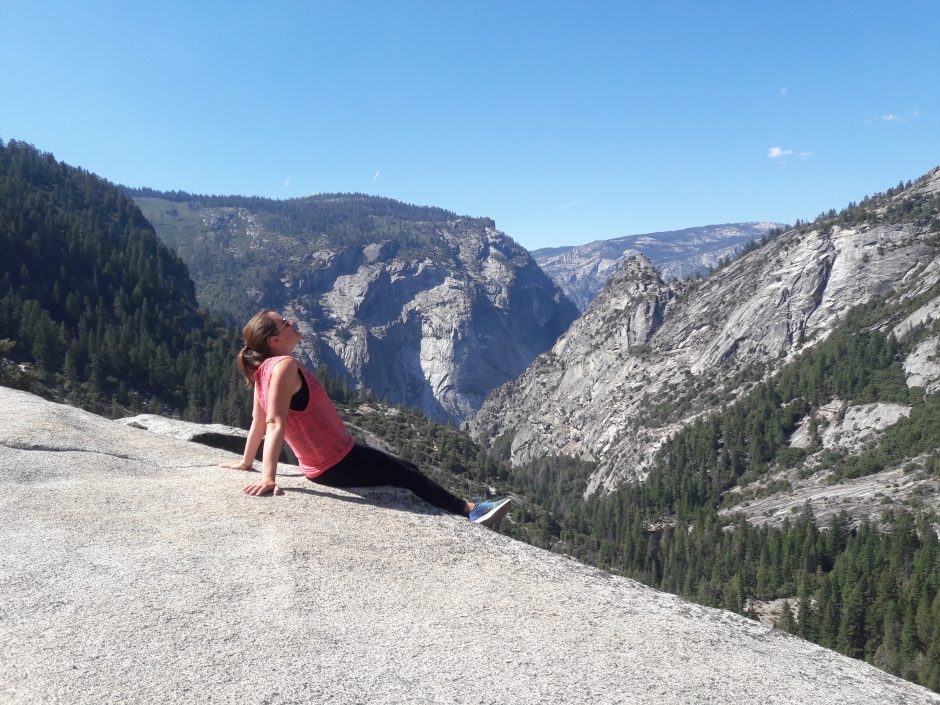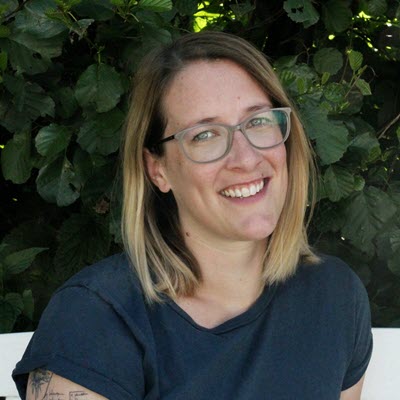Walter Benjamin Fellowship awardee Dr. Larissa Kraus be coming to the LSI to work on a collaborative project that harnesses her experience with human brain tissue and her interest in epilepsy.
We caught up with the newly minted PhD in the week following her thesis defense, and posed a few questions about her plans for Vancouver.
How do your research interests tie in with the work being pursued in the Cembrowski Lab – why of the many labs in which you might pursue post-doctoral work was this the one you wanted to come to?
This was actually a lucky and perfect fit. During my PhD at the Charité in Berlin I started working with resected living human brain tissue and investigated potential novel anti-epileptic mechanisms. The supervisor of my thesis met Mark during a conference in Italy and they talked about the potential it would have for Mark using his techniques and expertise with single cell RNA sequencing in human brain tissue. However, Mark has not worked with human brain tissue before, so my PhD supervisor recommended me as a potential PDF. Mark and I had an interview and quite quickly decided that we would like to do a project together. Not only Mark’s extensive knowledge on big data analysis and single cell RNA sequencing, but also the cooperation with neurosurgeons at Vancouver General Hospital (VGH) make this a perfect fit for me. I can learn a bunch of new techniques, teach others my knowledge on how to work with human brain samples and live in an amazing city.
How will you be collaborating with neurosurgeons and neuropathologists here in Vancouver?
So far we set up all ethical agreements and requirements together with neurosurgeons and neuropathologists from VGH, which was really helpful. Once a patient has given consent, we will receive tissue directly from the operation room by the neurosurgeons, meaning we will be in close contact with them before and after the operation. Since several clinical aspects could have an effect on how we analyse and interpret our data, it is important to keep an open communication with both neurosurgeons and neuropathologists throughout the whole project.
What specific mechanisms are you interested in looking at in neurological disorders?
Since my PhD, I am especially interested in epilepsy and epileptogenesis. There is not a lot known on how individual cell types and subpopulations of neurons are affected during the cause of epilepsy. Especially inhibitory neurons seem to play a very interesting role in epilepsy, since some of them can block seizures, while others don’t. All this is known for the rodent brain, but there is only limited knowledge on how epilepsy changes the human inhibitory network.
What issues do you hope to resolve through this work?
We could potentially find new anti-epileptic mechanisms involving only a subset of neurons. This could especially help to develop new therapeutic options for patients suffering from temporal lobe epilepsy, since 30-40% of these patients continue to have seizures despite taking multiple anti-epileptic drugs.
 Tell us a little bit about yourself!
Tell us a little bit about yourself!
Hiking wasn’t one of my favourite activities for a long time (I am more of a water loving person). I got lost in the mountains in Austria with my dad once when I was about 10 years old, nothing dangerous happened but we were gone for four hours, with no way to reach anyone (my mom went a bit nuts) and meeting nobody. After that I never quite understood the point about hiking or idea of ‘the route is the goal’ (might be a German saying “Der Weg ist das Ziel”). It took me some years, but now I enjoy hiking and this little feeling of being lost. Hiking in Yosemite definitely helped too, since it is so beautiful.
Read about the Walter Benjamin Fellowship
